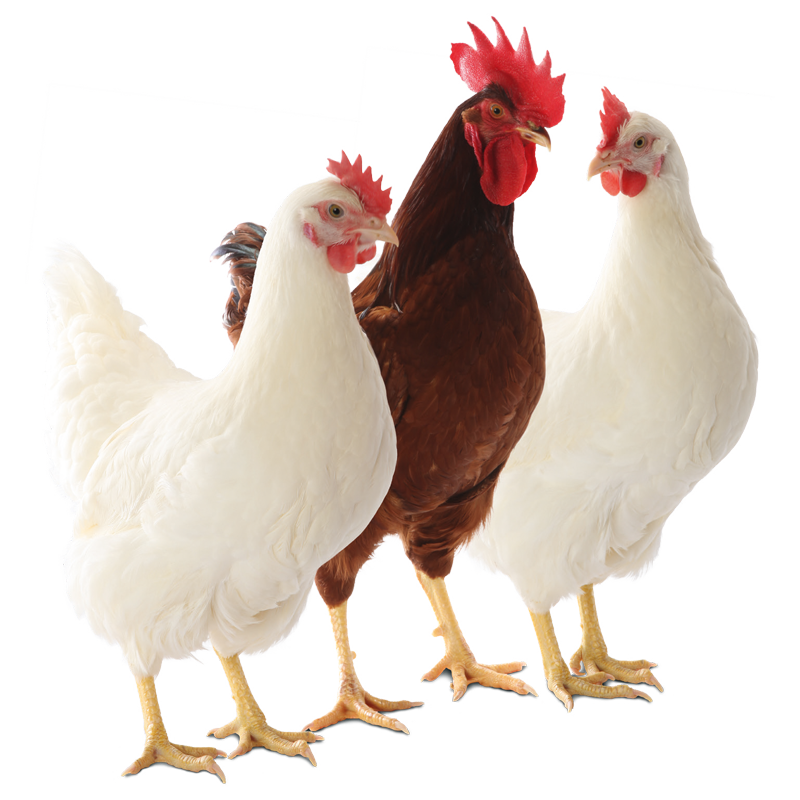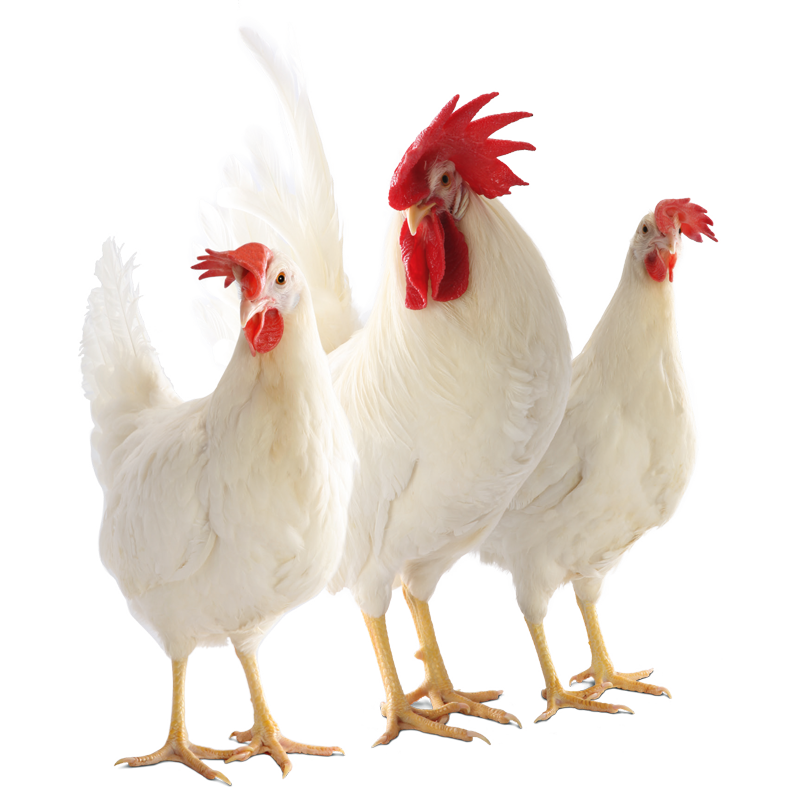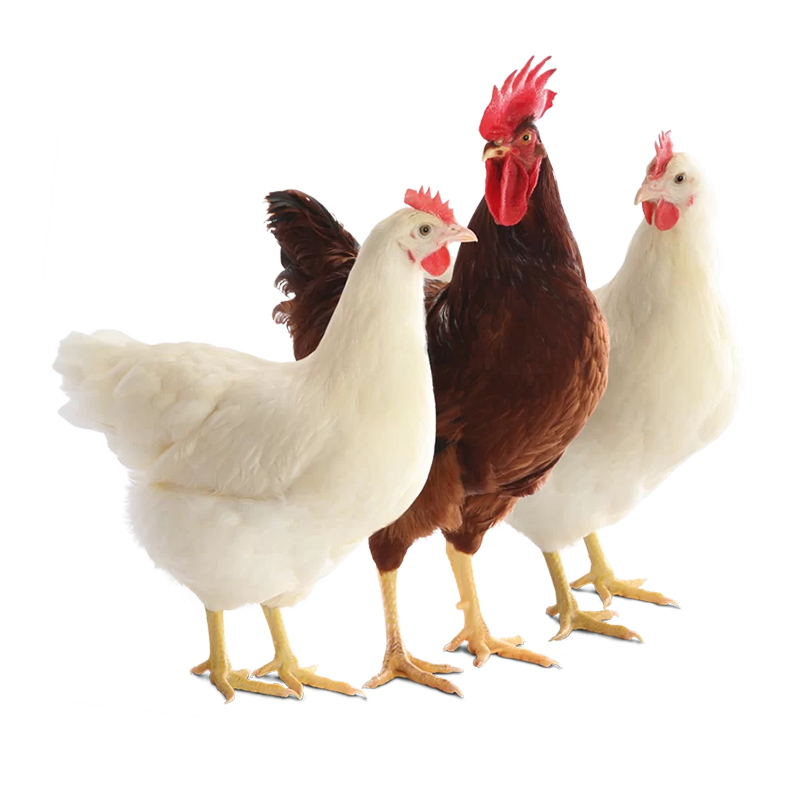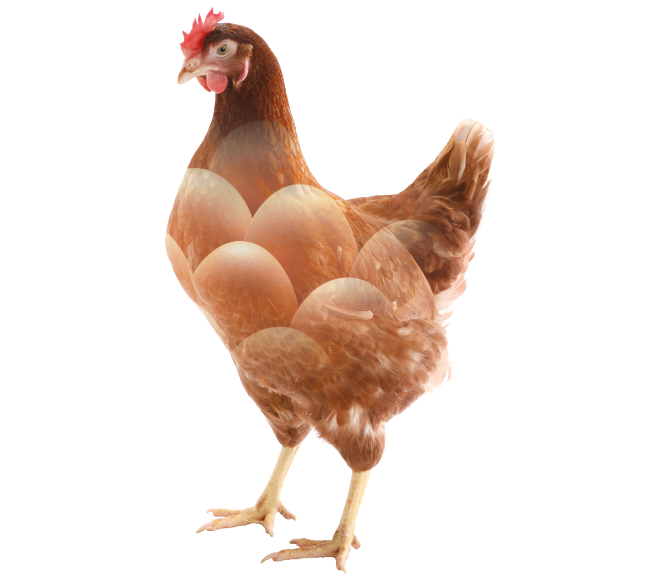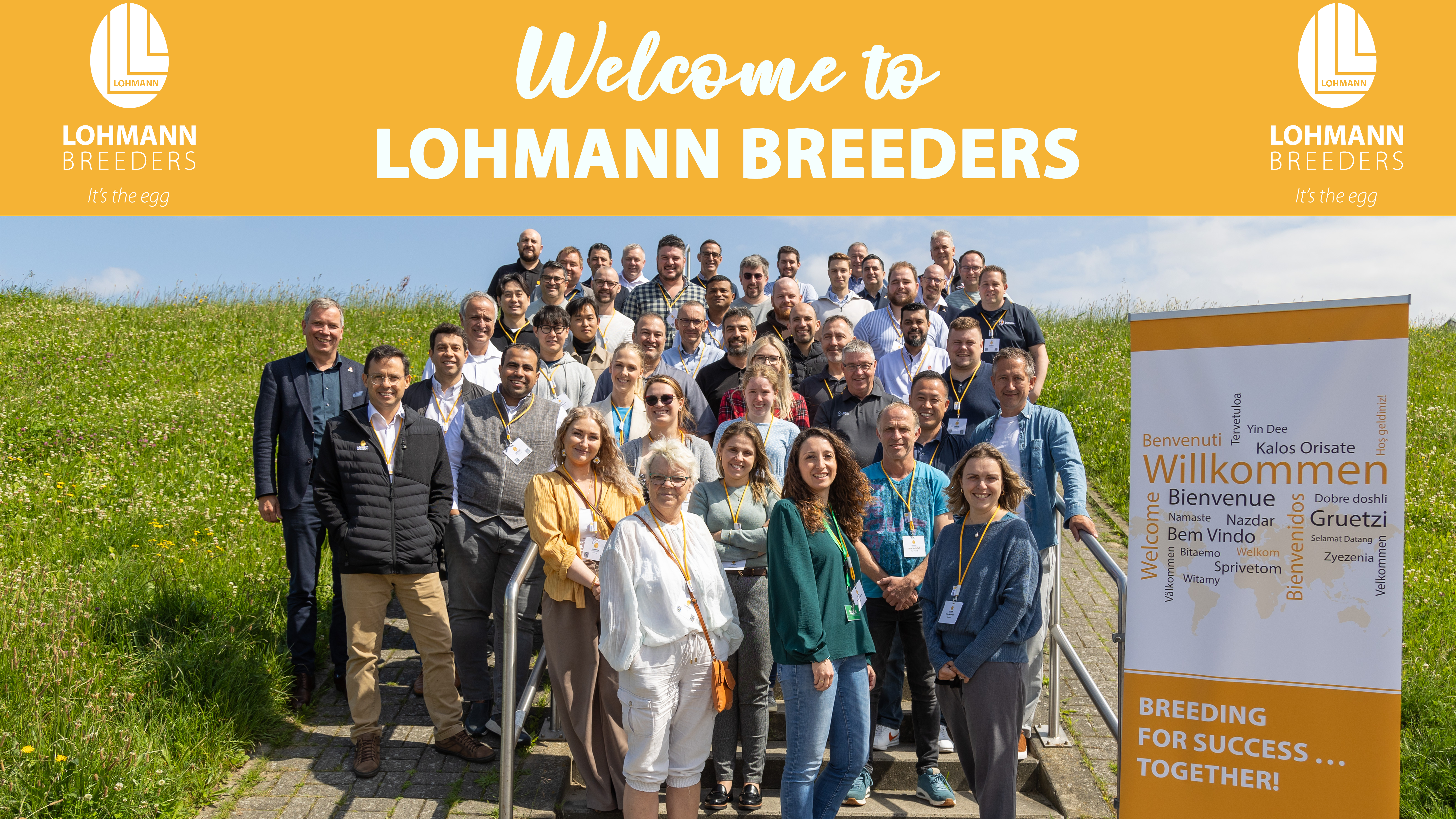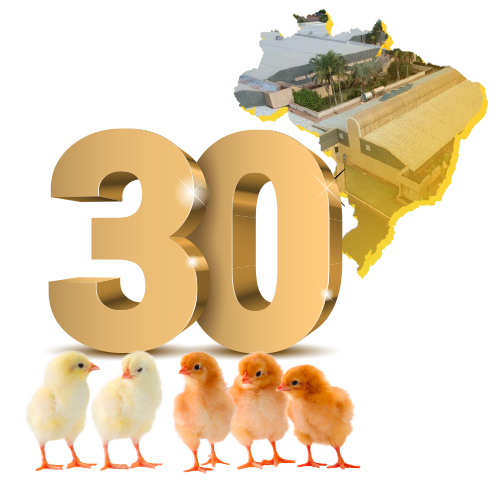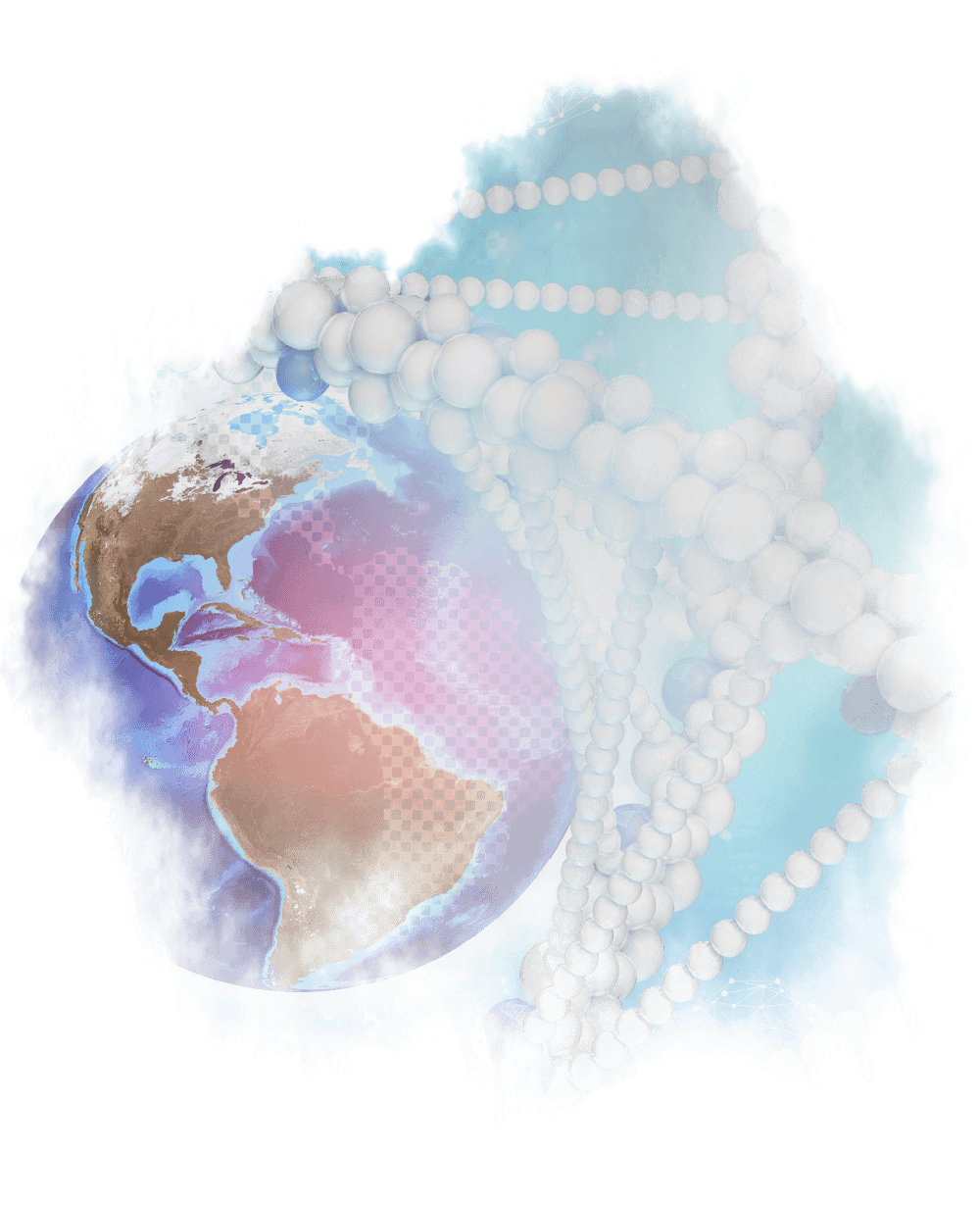The Heinz-Lohmann Foundation was initiated by the brothers Paul-Heinz and Erich Wesjohann and registered on 4th August 1997 as a non-profit subsidiary of Lohmann & Co. AG, which belongs to the PHW Group and is wholly owned by the Paul-Heinz Wesjohann family. The PHW Group is one of the leading German companies with major activities in the areas of nutrition, health and agriculture and best known by the poultry brand name WIESENHOF.
After the reception, a memorial was unveiled, shown in the picture with curators of the Foundation (from left: Hans-Werner Hannemann, Peter Bleser MdB, Prof. Dr. Werner Zwingmann, Renate Grothkopf (CEO), Paul-Heinz Wesjohann, Freifrau Dagmar von Cramm, Dr. Reinhard Grandke, Peter Wesjohann, Alfons Frenk, Peter Engel and Harm Specht).

Heinz Lohmann Memorial on Lohmann Campus
Photo: PHW-Group
The Wesjohann brothers chose the name of the foundation in memory of the founder Heinz Lohmann (1901-1975), who laid the foundation for today’s Lohmann & Co AG in 1932 with a fishmeal factory in Cuxhaven. His approach to business was to utilize scientific knowledge for the benefit of agriculture and his company. For decades he trained his staff and hired qualified people to spread the latest knowledge on modern animal and poultry breeding, nutrition, health and management. The Wesjohann brothers established the foundation to keep this tradition alive and to express their responsibility as industry leaders for food quality and related concerns of society.
Since the establishment of the foundation, 7 Nutrition Symposia were organized as a platform for 39 invited speakers from universities and research institutes, trade organizations and society to review recent scientific results and developments related to the future of human nutrition:
1997: Nutrition in 2010 – what will we eat the day after tomorrow?
1998: Meat – food with controversial perceptions of society
2000: Food Quality – joint responsibility of producers, industry and trade
2002: Changing Agriculture or Consumers – who determines the market?
2004: Globalization of Nutrition – can we uphold German quality standards?
2006: Wholesome or Cheap? – the future of nutrition
2008: Energy vs. Food – will food prices increase?
At a reception on April 14th 2010, members of the Lohmann and Wesjohann families, administration and regional politicians, former employees and business associates who remember Heinz Lohmann from his active years, current managers of the PHW and EW Groups and board members of the Heinz Lohmann Foundation met in Cuxhaven to reflect on the lasting impact of Heinz Lohmann and to review the dynamic development of the PHW and WE Groups since the take-over of Lohmann & Co. AG by the Wesjohann family 23 years ago.
Next time you are in Cuxhaven and visit the Lohmann Campus, make sure you take a close look at this beautiful 4 t Diabas Tuff rock, which originates from the Marmara region of Turkey and dates back to Palaeozoic times.
A portrait of Heinz Lohmann, founder of the Lohmann Group, was published in the first online edition of Lohmann Information (Specht, 2006) and is still top of the list according to the number of visits for individual papers on the website, which suggests that readers of our time are still trying to learn from Heinz Lohmann 35 years after his death. What was so special about Heinz Lohmann and his approach to business?
He started his first business during the depression period in 1932: a fishmeal factory in Cuxhaven as a joint project with 20 partners in the local fish industry. Fishmeal was considered as a valuable protein source for animal nutrition, especially for pigs and poultry, and it was good business to turn offal of the fish industry (with distinctive odour!) into a valuable product for the feed industry.
His training as apprentice in business included experience gained during his visit of the USA during the 1930s. After World War II, Heinz Lohmann was keen to learn from developments in the USA and imported valuable know-how for the German feed industry. In 1952 he signed a licence agreement with the US company Lederle to produce the antibiotic substance CTC, which was marketed under the trade name Lohmacin. The fermentation unit started to operate already three months after signing the agreement – today it would probably take three years to pass all legal hurdles for a new process and product. The scientific information provided by the US partner had to be substantiated to meet German legal requirements, the sales and service staff had to be trained to explain the benefits of feed additives to the feed industry, and feed analysis was offered free of charge to help in designing optimal rations including Lohmacin for specific groups of animals.
The use of antibiotics has been gradually eliminated by EU directives since the early 1970s. Lohmann Animal Health introduced alternative feed additives in time and today supplies the poultry and animal industry with a complete range of products for efficient production of animal protein from healthy animals.
After Word War II, the growing demand for poultry meat and eggs could not be met with traditional breeds and production systems. In 1956 Lohmann signed a licence agreement with the US breeding company Nichols to breed and distribute Lohmann Broilers, and two years later a similar agreement with the US breeding company Heisdorf & Nelson to breed and distribute HNL Nick Chick layers. These contracts enabled Lohmann to import not only specialized pure lines, but also the complete knowledge of modern breeding, nutrition, disease prevention and management.
After the expiration of the licence agreements, Lohmann Tierzucht was able to continue the genetic improvement and is today a key player in the world market for egg-type chickens and SPF eggs for vaccine production. Broiler breeding has been discontinued in Cuxhaven in the 1990s, when the EW Group acquired Aviagen and concentrated broiler and turkey breeding in Scotland.
The pioneer years were not without major problems. Disease prophylaxis as we know it today was still in its infancy. Specialized poultry pathologists had to be trained and new vaccines had to be developed against a range of common diseases. Lohmann established a Veterinary laboratory with the capacity to monitor the disease status of the own breeding flocks and offer diagnostic services to customers. Today Lohmann Animal Health produces a range of poultry vaccines in its own plant, based on SPF eggs supplied by Lohmann Tierzucht. Lohmann started in the mid 1950s to sell day-old broilers to farmers interested in growing broilers, but soon recognized that it was necessary to provide processing capacity for the growers and to get involved in marketing. The brand name “Goldhähnchen” was introduced and later changed to “WIESENHOF”, which became a well-known brand in Europe and is recognized as market leader and quality brand in Germany.
Human Nutrition and Pharmaceuticals
Heinz Lohmann also ventured early into human nutrition with his purchase of Pomps in 1938 to produce baby food in Cuxhaven. Production capacities were expanded before this company was sold to Maizena in 1968. His son Bernd Lohmann started the company TAD in the late 1960s to produce pharmaceuticals for animals and humans. In the 1990s, the animal health activities were combined with animal nutrition and TAD focused on a range of human pharmaceuticals. TAD was sold in 2007 and continues to operate in Cuxhaven within a larger group.The company Nutrilo was founded in 1984 and is successfully expanding with food supplements and special products for human health.
The entrepreneur Heinz Lohmann
As businessman in Cuxhaven, Heinz Lohmann became known for his energy and integrative approach to pursue his goals. To appreciate his impact in modernizing poultry and animal production in Germany, we should remember the opposition he faced not only from established trade organizations, but also from politics and administration. He imported knowhow from the USA and continued the developments in different areas with a qualified staff, based on scientific methods. In retrospect, we can say that one of his major contributions was to recognize the profound changes in consumer demand and methods of efficient food production earlier than most people in Europe and acted accordingly. Professionalism and an open mind for innovations, combined with positive risk assessment and deep personal involvement, were typical for Heinz Lohmann.Lohmann & Co sold to Wesjohann
During the 1980s the Lohmann Group was faced with serious financial problems in connection with large turn-key projects. As a result, Lohmann & Co was sold in 1987 to the Wesjohann family, which had been a long-term partner and knew the Lohmann business well enough to recognize potential synergism and possibilities to participate in the growing global market for products and services required for efficient poultry and animal production.The Wesjohann business was restructured in 1998 and divided among the two brothers: Paul-Heinz Wesjohann and his family own the PHW Group, Erich Wesjohann and his family own the EW Group. Each of the two groups employs more than 5,000 people worldwide today, including three companies on the Lohmann Campus in Cuxhaven with currently about 530 employees: Lohmann Animal Health (400), Nutrilo (110) and Vibalogic (20).
